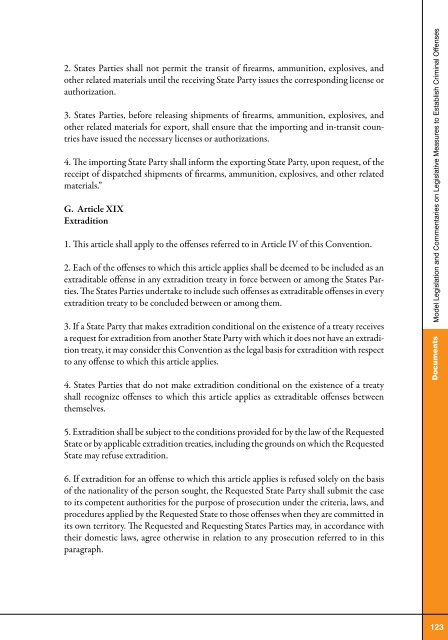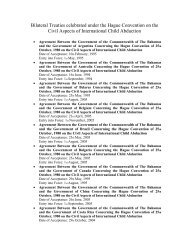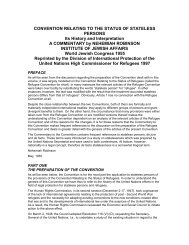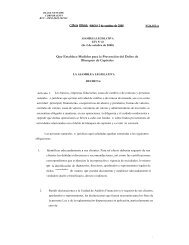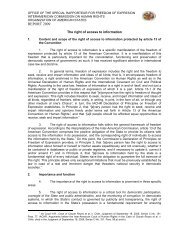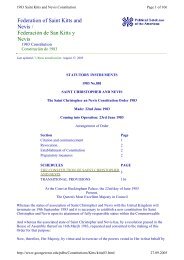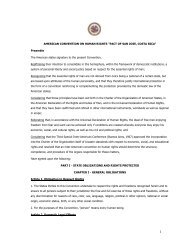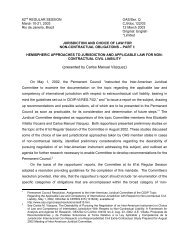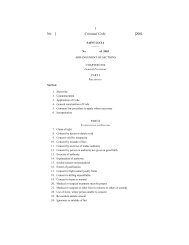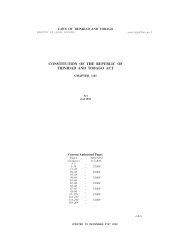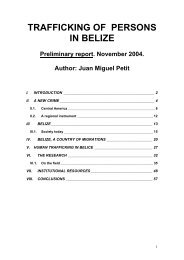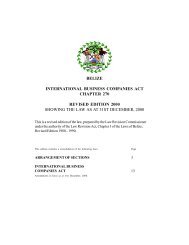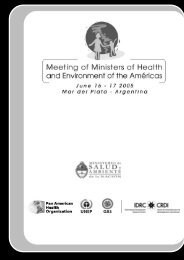Documentos Claves de la OEA sobre Seguridad, Vol. III CIFTA
Documentos Claves de la OEA sobre Seguridad, Vol. III CIFTA
Documentos Claves de la OEA sobre Seguridad, Vol. III CIFTA
Create successful ePaper yourself
Turn your PDF publications into a flip-book with our unique Google optimized e-Paper software.
2. States Parties shall not permit the transit of firearms, ammunition, explosives, and<br />
other re<strong>la</strong>ted materials until the receiving State Party issues the corresponding license or<br />
authorization.<br />
3. States Parties, before releasing shipments of firearms, ammunition, explosives, and<br />
other re<strong>la</strong>ted materials for export, shall ensure that the importing and in-transit countries<br />
have issued the necessary licenses or authorizations.<br />
4. The importing State Party shall inform the exporting State Party, upon request, of the<br />
receipt of dispatched shipments of firearms, ammunition, explosives, and other re<strong>la</strong>ted<br />
materials.”<br />
G. Article XIX<br />
Extradition<br />
1. This article shall apply to the offenses referred to in Article IV of this Convention.<br />
2. Each of the offenses to which this article applies shall be <strong>de</strong>emed to be inclu<strong>de</strong>d as an<br />
extraditable offense in any extradition treaty in force between or among the States Parties.<br />
The States Parties un<strong>de</strong>rtake to inclu<strong>de</strong> such offenses as extraditable offenses in every<br />
extradition treaty to be conclu<strong>de</strong>d between or among them.<br />
3. If a State Party that makes extradition conditional on the existence of a treaty receives<br />
a request for extradition from another State Party with which it does not have an extradition<br />
treaty, it may consi<strong>de</strong>r this Convention as the legal basis for extradition with respect<br />
to any offense to which this article applies.<br />
4. States Parties that do not make extradition conditional on the existence of a treaty<br />
shall recognize offenses to which this article applies as extraditable offenses between<br />
themselves.<br />
5. Extradition shall be subject to the conditions provi<strong>de</strong>d for by the <strong>la</strong>w of the Requested<br />
State or by applicable extradition treaties, including the grounds on which the Requested<br />
State may refuse extradition.<br />
6. If extradition for an offense to which this article applies is refused solely on the basis<br />
of the nationality of the person sought, the Requested State Party shall submit the case<br />
to its competent authorities for the purpose of prosecution un<strong>de</strong>r the criteria, <strong>la</strong>ws, and<br />
procedures applied by the Requested State to those offenses when they are committed in<br />
its own territory. The Requested and Requesting States Parties may, in accordance with<br />
their domestic <strong>la</strong>ws, agree otherwise in re<strong>la</strong>tion to any prosecution referred to in this<br />
paragraph.<br />
Mo<strong>de</strong>l Legis<strong>la</strong>tion and Commentaries on Legis<strong>la</strong>tive Measures to Establish Criminal Offenses<br />
Documents<br />
123


